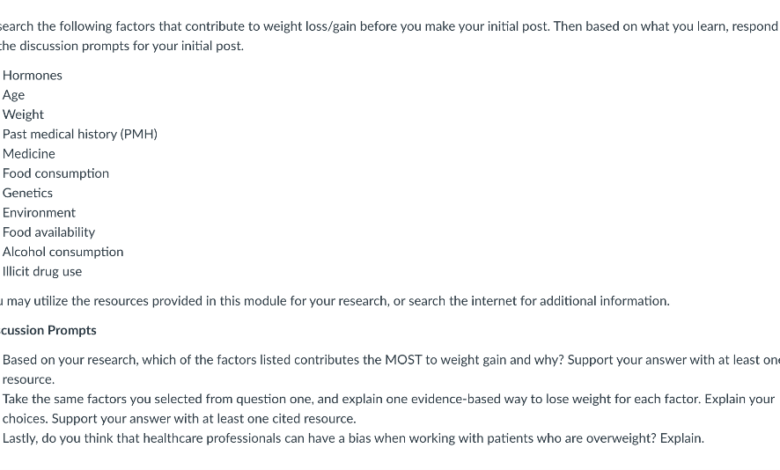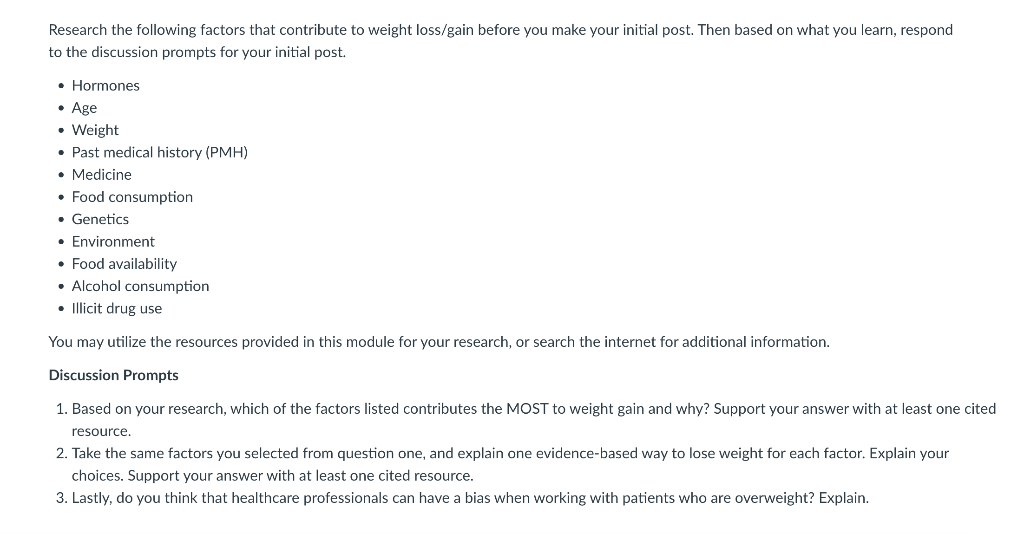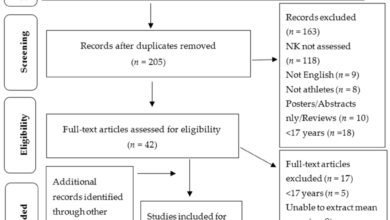
Where You Gain Weight Depends on Uncontrollable Factors
Where you gain weight depends on several uncontrollable factors, making weight loss a complex journey. Our bodies are influenced by a fascinating interplay of genetics, hormones, lifestyle, environment, and even medical conditions. Understanding these factors is crucial for approaching weight management in a holistic and effective way.
This article delves into the science behind weight distribution, exploring how these uncontrollable elements shape where we tend to gain weight. From the genetic blueprint that guides our bodies to the hormonal symphony that directs our metabolism, we’ll uncover the intricate mechanisms that influence our weight gain patterns.
Prepare to be surprised by the hidden factors that contribute to your unique body shape.
Genetic Predisposition
Your genes play a significant role in determining your weight, influencing your metabolism, appetite, and body composition. While environmental factors like diet and exercise are also crucial, genetics can predispose you to gain weight, even if you follow a healthy lifestyle.
Specific Genes Linked to Weight Gain
Genes associated with weight gain can influence various aspects of your body, including your metabolism, fat storage, and appetite.
- FTO gene:This gene is linked to obesity and affects the regulation of appetite and energy expenditure. Studies have shown that individuals with certain variations in the FTO gene are more likely to be overweight or obese.
- MC4R gene:This gene plays a crucial role in regulating appetite and energy balance. Mutations in the MC4R gene can lead to increased appetite and reduced metabolism, making it more challenging to maintain a healthy weight.
- PPARG gene:This gene is involved in fat storage and metabolism. Individuals with certain variations in the PPARG gene may have a higher risk of developing obesity, especially in the abdominal region.
- Leptin gene:Leptin is a hormone that regulates appetite and energy expenditure. Mutations in the leptin gene can lead to leptin deficiency, which can result in increased appetite and weight gain.
Hormonal Influences: Where You Gain Weight Depends On Several Uncontrollable Factors

Hormones play a crucial role in regulating various bodily functions, including metabolism, appetite, and energy expenditure. Hormonal imbalances can significantly impact weight distribution, leading to weight gain in specific areas of the body.
The Role of Hormones in Weight Distribution
Hormones are chemical messengers that travel through the bloodstream, influencing various bodily processes. Certain hormones are directly involved in regulating weight distribution, including insulin, leptin, and ghrelin.
- Insulin: Insulin is a hormone produced by the pancreas that helps regulate blood sugar levels. It facilitates the uptake of glucose from the bloodstream into cells for energy. When insulin levels are chronically elevated, it can lead to increased fat storage, particularly in the abdominal region.
- Leptin: Leptin is a hormone produced by fat cells that signals to the brain about the body’s energy stores. It acts as an appetite suppressant, reducing hunger and promoting feelings of fullness. Leptin resistance, where the brain becomes less responsive to leptin’s signals, can contribute to overeating and weight gain.
- Ghrelin: Ghrelin is a hormone produced in the stomach that stimulates appetite. It promotes hunger and increases food intake. Elevated ghrelin levels can contribute to weight gain, particularly in individuals with a predisposition to obesity.
Hormonal Imbalances and Weight Gain
Hormonal imbalances can disrupt the delicate balance of these hormones, leading to weight gain in specific body regions.
- Insulin Resistance: Insulin resistance is a condition where cells become less responsive to insulin’s effects, leading to elevated blood sugar levels. This can trigger increased fat storage, particularly in the abdominal region, leading to central obesity.
- Leptin Resistance: Leptin resistance can lead to overeating and weight gain, as the brain fails to receive signals of satiety. This can contribute to both overall weight gain and fat accumulation in various body regions.
- High Ghrelin Levels: Elevated ghrelin levels can contribute to increased appetite and food intake, leading to weight gain. This can result in fat accumulation in different areas of the body depending on individual genetic and lifestyle factors.
Age and Sex Hormones
Age and sex hormones also play a role in weight distribution.
- Menopause: Menopause is a natural biological process that occurs in women as they age. During menopause, estrogen levels decline, which can contribute to fat redistribution, leading to increased fat storage in the abdominal region.
- Androgens: Androgens are male sex hormones that influence muscle mass and fat distribution. Lower androgen levels in men, as they age, can contribute to increased fat accumulation, particularly in the abdominal region.
Lifestyle Factors

Lifestyle factors play a significant role in weight gain, often influencing how and where fat is deposited. Understanding these factors can empower you to make informed choices that promote a healthy weight and body composition.
Impact of Lifestyle Factors on Weight Gain
Lifestyle factors contribute significantly to weight gain by influencing energy balance, hormonal responses, and overall body composition. The table below summarizes key lifestyle factors, their impact on weight gain, the body regions affected, and illustrative examples.
| Lifestyle Factor | Impact on Weight Gain | Body Region Affected | Examples |
|---|---|---|---|
| Sedentary Lifestyle | Decreased energy expenditure, leading to calorie surplus and fat accumulation | Abdomen, hips, thighs | Prolonged sitting, limited physical activity, watching TV for extended periods |
| Sleep Deprivation | Increased appetite, cravings for unhealthy foods, reduced metabolism | Abdomen, face, neck | Insufficient sleep, irregular sleep patterns, chronic sleep disorders |
| Stress | Increased cortisol production, leading to fat storage, particularly in the abdomen | Abdomen, face, neck | Work-related stress, financial worries, relationship problems |
| Dietary Habits | Calorie intake exceeding expenditure, consumption of processed foods, sugary drinks, and unhealthy fats | Abdomen, hips, thighs | Fast food meals, sugary snacks, large portions, frequent restaurant dining |
Effects of Different Exercise Types on Weight Distribution, Where you gain weight depends on several uncontrollable factors
The type of exercise you engage in can influence weight distribution. For instance, aerobic exercise, such as running or swimming, tends to burn calories more effectively, leading to overall weight loss. Resistance training, on the other hand, builds muscle mass, which can contribute to a more toned physique and improved body composition.
It’s a frustrating fact of life that where you gain weight depends on several uncontrollable factors, like genetics and metabolism. But, even if you can’t change those things, you can still make healthy choices to manage your weight, and walking is a fantastic way to do just that.
Check out 25 reasons to love walking for exercise for inspiration and motivation. Walking is a low-impact, accessible activity that’s great for overall health and fitness, and it’s a reminder that even when you can’t control everything, you can still make positive choices that impact your well-being.
| Exercise Type | Impact on Weight Distribution | Body Region Affected | Examples |
|---|---|---|---|
| Aerobic Exercise | Promotes overall weight loss, including fat reduction in various areas | Abdomen, hips, thighs, arms | Running, swimming, cycling, dancing |
| Resistance Training | Builds muscle mass, which can contribute to a more toned physique and improved body composition | Arms, legs, chest, back | Weightlifting, bodyweight exercises, resistance bands |
Modifying Lifestyle Habits for Targeted Weight Gain
You can influence weight gain in specific areas by making strategic lifestyle modifications.
Targeting Abdominal Fat
Prioritize sleep
Aim for 7-9 hours of quality sleep per night to regulate hormones and reduce stress.
It’s frustrating how weight gain can be so unpredictable. You might be surprised to learn that where you gain weight first depends on several uncontrollable factors, like genetics and hormones. But don’t let that deter you from making healthy choices! For example, you might be wondering, “Can pasta be healthy?” This article can help you understand how to make pasta a part of a balanced diet.
Ultimately, remember that while some factors are out of your control, your choices still matter when it comes to your health and well-being.
Manage stress effectively
Engage in stress-reducing activities like yoga, meditation, or spending time in nature.
Incorporate resistance training
Building muscle mass can increase metabolism and burn calories more efficiently.
Targeting Hip and Thigh Fat
Focus on high-intensity interval training (HIIT)
It’s funny how our bodies work, right? Where we gain weight can depend on so many things, from genetics to hormones. But, one thing that’s definitely controllable is how we manage our stress, especially when we’re working from home.
I’ve found that following the tips in 10 ways to stay sane when working from home really helps me keep my stress levels down and my mind focused. And, when I’m less stressed, I tend to make healthier choices, which is a good thing for my overall well-being, including my weight.
I guess what I’m saying is, even though some things are out of our control, we can still take steps to manage the things we can.
HIIT workouts alternate between intense bursts of activity and short recovery periods, burning calories and promoting fat loss.
Include lower body exercises
Squats, lunges, and deadlifts target the muscles in the hips and thighs, promoting muscle growth and fat reduction.
Targeting Arm Fat
Engage in upper body exercises
Push-ups, bicep curls, and tricep dips target the muscles in the arms, contributing to a more toned appearance.
Consider incorporating cardio exercises
Activities like swimming and boxing work the upper body and can promote overall calorie burn.
Environmental Factors
The environment we live in plays a significant role in our weight gain journey. Factors such as stress, sleep quality, and cultural influences can significantly impact our bodies’ responses to food and exercise.
The Influence of Stress and Sleep on Weight Distribution
Stress and sleep quality can influence weight distribution in several ways. Chronic stress, for example, can lead to an increase in the production of cortisol, a hormone that can contribute to abdominal fat storage. Cortisol also affects appetite, increasing cravings for sugary and fatty foods.
Furthermore, sleep deprivation can disrupt hormone balance, leading to increased hunger and decreased metabolism. This can result in weight gain, particularly in the abdominal region.
Cultural Factors and Body Image
Cultural factors can shape our body image and preferences for weight gain. Different cultures have varying ideals of beauty and desirability, which can influence how we perceive our bodies and what we consider to be an acceptable weight. For example, in some cultures, a curvier physique is considered attractive, while in others, a slimmer figure is preferred.
These cultural norms can influence our dietary habits and exercise routines, ultimately affecting our weight gain patterns.
Dietary Habits and Weight Gain in Different Body Regions
Dietary habits can have a significant impact on weight gain in different body regions. For example, a diet high in processed foods, sugary drinks, and saturated fats can contribute to abdominal fat storage. Conversely, a diet rich in fruits, vegetables, and whole grains can promote a healthier weight distribution and reduce the risk of obesity.
Medical Conditions
While our lifestyle choices play a significant role in weight management, certain medical conditions can also contribute to weight gain, often in specific areas. Understanding these conditions and their impact on weight distribution can be crucial for personalized treatment and effective weight management.
Conditions Contributing to Weight Gain
Medical conditions can affect weight gain in various ways, impacting both overall weight and localized fat distribution. These conditions often disrupt hormonal balance, metabolic processes, or alter energy expenditure, leading to weight gain.
- Hypothyroidism:This condition occurs when the thyroid gland doesn’t produce enough thyroid hormone, slowing down metabolism and leading to weight gain. Weight gain often occurs in the abdomen, face, and legs.
- Cushing’s Syndrome:This condition results from excessive cortisol production, leading to weight gain, particularly in the face, neck, and abdomen. Cortisol, a stress hormone, promotes fat storage in the abdominal area.
- Polycystic Ovary Syndrome (PCOS):This hormonal disorder can lead to insulin resistance and weight gain, particularly in the abdomen and thighs. Insulin resistance makes it harder for the body to use glucose for energy, leading to fat storage.
- Insulin Resistance:This condition occurs when the body doesn’t respond properly to insulin, a hormone that regulates blood sugar levels. This can lead to weight gain, particularly in the abdominal area.
- Sleep Apnea:This condition involves pauses in breathing during sleep, often leading to weight gain, especially in the neck and upper body. Sleep apnea can disrupt hormone balance and increase appetite.
Addressing Weight Gain Related to Medical Conditions
Addressing weight gain related to medical conditions often involves a multi-pronged approach that includes:
- Medical Management:Treatment for underlying medical conditions is crucial for managing weight gain. For example, hormone replacement therapy for hypothyroidism or medications for PCOS can help regulate hormonal balance and promote weight loss.
- Lifestyle Modifications:Lifestyle changes like a healthy diet, regular exercise, and stress management can complement medical treatment and promote weight loss.
- Weight Loss Strategies:In some cases, weight loss strategies like calorie restriction or bariatric surgery may be recommended under medical supervision.
Concluding Remarks
Navigating the complexities of weight gain can be challenging, but understanding the influence of uncontrollable factors empowers us to make informed choices. While we may not be able to change our genes or completely control our hormones, we can adjust our lifestyle habits and seek medical guidance when necessary.
Remember, every body is unique, and embracing a holistic approach to weight management is key to achieving lasting results.






